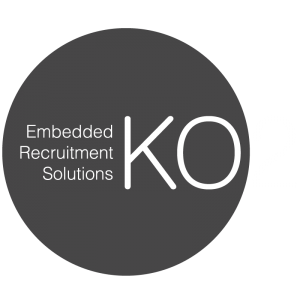There are a wide variety of different programming languages used in software development, ranging from the most popular and universal to more niche and complex ways of coding. One programming language that is currently getting a lot of attention is Rust, which was first introduced just over a decade ago and is beginning to be used in the place of popular programming languages like C and C++.
As Rust grows in popularity, more and more companies are starting to see the benefits of hiring developers with experience coding in Rust. Our experience as recruitment experts in the electronic embedded system sector has meant that we’re starting to see more roles where Rust is a requirement for software developers, especially considering the applications of Rust in embedded software.
The advantages and features of Rust make it an incredibly useful language, but it is also a complex one that requires experience with similar languages and a good level of general software development knowledge. Becoming a Rust developer requires a specific career path and specialist experience, but it’s certainly a role that will continue to be in demand across a range of industries.
In this article, we explain what a Rust developer is, what the role involves, the necessary career path, and some of the key skills that are needed to succeed in this job.
What is the Rust Programming Language?
Rust is a low-level, multi-paradigm programming language that was first developed by Mozilla in 2010. It’s quickly becoming an increasingly popular language for coding thanks to advantages such as its speed, safety and versatility.
You can use Rust to create a wide range of programs and applications that are generally safer and more stable than those written in languages like C or C++. It’s becoming increasingly popular for software used in embedded devices and systems, meaning that there’s a growing demand for developers with experience in Rust in this sector of the engineering industry.

Why is Rust Becoming Popular?
A significant motivator behind the development of Rust was the fact that languages like C and C++ created code with memory errors and issues with concurrent programming. Programs written in Rust are generally considered to be safer, faster and more straightforward to create, thanks to features like the borrow checker, reference lifetimes and the two code writing modes: Safe Rust and Unsafe Rust.
Rust has been voted as the most popular programming language for seven years now, according to data from the Stack Overflow Develop Report. Whilst coding in Rust takes time to learn, the advantages that it offers over C and C++ are key contributors to why it’s such a popular language. And with so many potential applications, more and more developer roles are starting to require programmers to have Rust experience.
What is a Rust Developer?
A Rust developer is a software developer that creates programs and applications using the Rust programming language. They might be proficient in other programming languages and occasionally use these in projects, but their main responsibilities will require the development of software using Rust.
Rust can be used for system programming or web application development, so there will be Rust programmer jobs across a range of different industries. Developers that are proficient in Rust are becoming more desirable in the embedded systems sector because the language produces incredibly secure and stable code, which is ideal for embedded software.

What Does a Rust Developer Do?
The role responsibilities of a Rust developer are similar to any other software engineering position, with the tasks mainly carried out using the Rust programming language. Specific responsibilities will differ between jobs, but below is a general list of tasks involved in Rust programmer jobs.
- Identify end-user requirements and create technical specifications from these
- Use end-user requirements to script Rust programming logic
- Create programs and software using Rust
- Facilitate specific functions by integrating third-party software components, libraries and programs
- Verify programs and systems and deploy them
- Evaluate, debug, improve and update software written with Rust
- Maintain and improve existing Rust codebases
- Respond to user feedback and ideate solutions
- Collaborate with other engineers and members of the development team
- Create technical documentation

How to Become a Rust Developer
The journey to becoming a Rust developer begins with your educational background and then involves career specialisation alongside personal development and relevant experience. Here’s what you need to consider if you’re planning to become a Rust engineer.
Education
As with many specific software engineering roles, you’ll need to study a relevant subject at university if you want the best possible chance of becoming a Rust developer. Plenty of software developers study computer science, maths, information technology or software development. If you want to work in the electronic embedded systems sector, you can also study an electronics or embedded systems engineering degree.
Rust is a relatively complex programming language that isn’t particularly beginner-friendly, so you’re unlikely to learn it whilst at university. However, you will gain an understanding of other low-level programming languages and learn the key principles of software development, which are the foundations of becoming a Rust developer.
Many engineering students choose to study a Masters qualification at university or do a year in industry as part of their degree. Both of these options can be very useful if you have a clear idea of your career path, as work experience can increase your career prospects and an Msc degree can demonstrate your skills in a particular area of interest.
Career Progression
As we’ve already discussed, programming in Rust is a more complex skill that many software developers don’t learn until later in their careers. Many companies seeking Rust developers will also be looking for candidates with practical experience, so you’re unlikely to get offers for Rust programmer jobs as a graduate.
The best way to begin your career in Ruse software development is to get a job where you use a similar programming language, like C or C++. It’s much easier to learn Rust when you are familiar with one of these, and you’ll get the most valuable experience working on projects in C or C++.
You may end up learning Rust as part of your job, or you could teach yourself the language once you have experience with another, similar way of coding. You can then gain practical Rust experience either by incorporating it into your work or by pursuing independent projects outside of work to further your career.
Once you are confident coding in Rust and have examples of projects where you have applied these skills, you will be able to apply for specific Rust developer jobs. You will likely be 5-10 years into your career as a developer by this point, but this experience is necessary to really thrive in the role.

Rust Developer Salary
According to data from Talent.com, the average annual salary for a Rust developer in the UK is £70,000. In order to become a Rust developer, you usually need prior experience in software development using other programming languages, so it’s a role with a high average salary because of the skills and experience needed.
As a junior Rust developer, you’ll likely have a lower annual salary and may work with other programming languages as well as some work in Rust. If you work as a freelance Rust developer, you may earn more money annually through one-off projects, as Rust software development is still a skill that is in high demand.
Top Skills for Rust Developer Jobs
If you want to become a Rust developer, there are certain skills that will benefit you on your career journey. Here are some of the most important skills that potential employers will be looking for.
Object-Oriented Programming
Object-oriented programming is a programming approach that is based on the idea of grouping data and code into ‘objects’. Rust is an object-oriented programming language, so if you want to become a developer in this area then you will need a good understanding of this approach and experience coding in object-oriented languages like Rust and C++.
Rust Development Tools and Frameworks
Frameworks are used in programming so that developers have access to ready-made solutions and components that make programming easier. Development tools have a similar purpose, and if you want to become a Rust developer then you’ll need experience with the most popular Rust tools and frameworks.
Actix Web and Rocket are two of the most popular frameworks for Rust developers, so these are both good starting points if you’re looking for useful tools.
Secure Coding
Secure coding is a programming approach that is guided by code security best practices. This ensures that the code is unlikely to be impacted by vulnerabilities or errors that mean the program could stop working or the data that it stores could become accessible to external parties.
Programming in Rust is generally considered to be very safe because of the safe features of the language, so developers that want to specialise in this area will benefit from a good understanding of secure coding principles and approaches. This is particularly relevant if you want to work in the IoT or embedded systems sectors, as the safety of data in these areas is incredibly important.
Software Engineering Principles
As with any specialist programming job, you will need an excellent understanding of all the key software engineering principles in order to become a Rust programmer. You will learn these principles as part of your education and then apply them to almost every project that you work on, so they’re a vital part of the foundation for a career in Rust.

Summary
Rust is starting to be seen as an alternative to C++, which is a programming language used for a huge variety of different programs and web applications. As recruiters that specialise in sourcing and placing C++ developers, we understand that our clients are starting to look for more candidates with Rust experience, so many developers are beginning to consider how they can develop their current skills and learn this new programming language to continue advancing their career.
If you’re a software developer looking for a Rust programming job in the electronic embedded systems sector, KO2 is a specialist recruitment agency that can help find your ideal role. Take a look at the current roles we have available, or get in touch to speak to our team about what you’re looking for.







